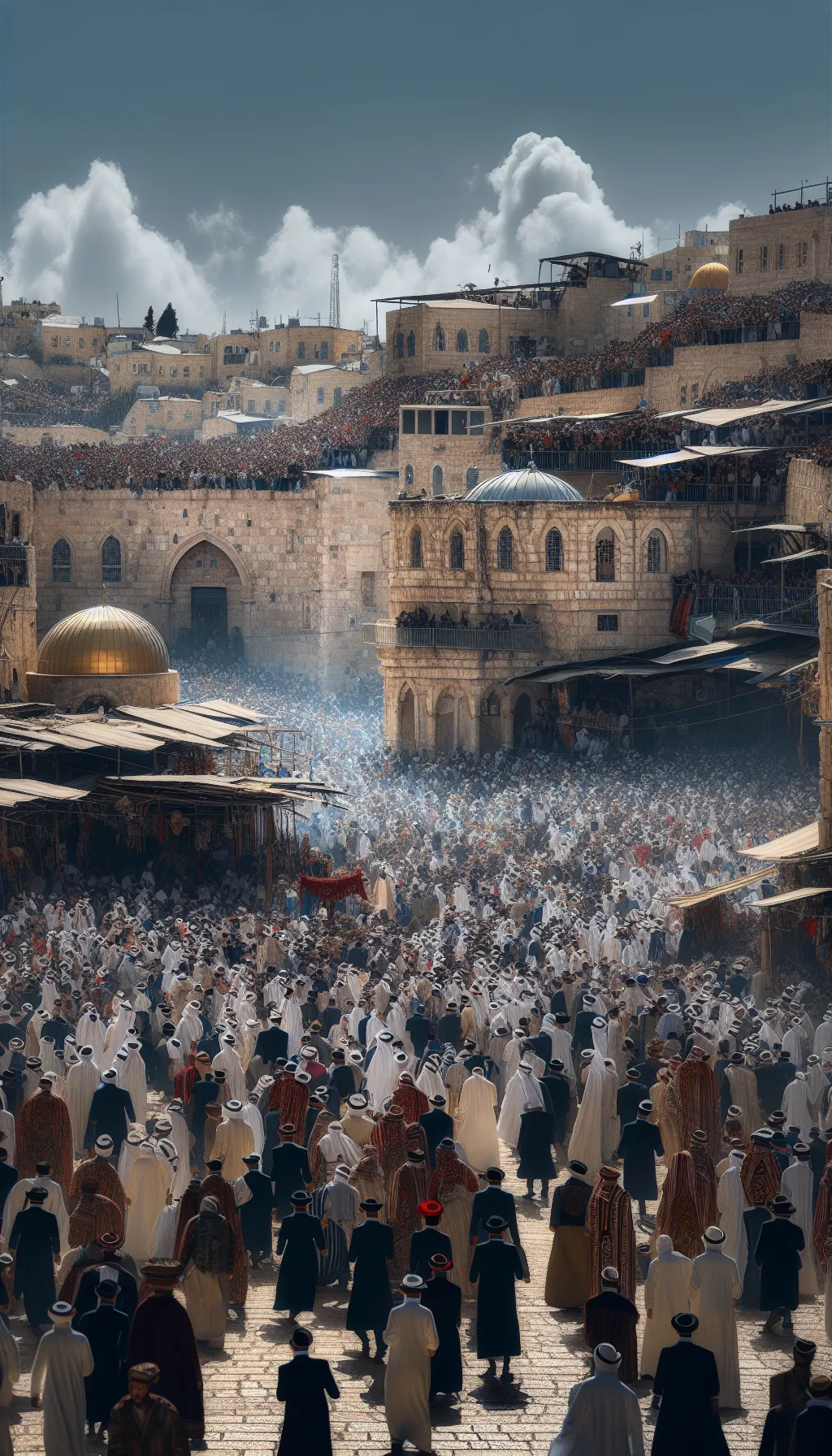Palestine – The Flames of Nebi Musa – April 4, 1920
TLDR;
- Event: The Nebi Musa riots erupted on April 4, 1920, in Jerusalem during a traditional Muslim festival, turning into violent clashes between Arab rioters and Jewish communities.
- Cause: Tensions were high due to the British Mandate and the Balfour Declaration, which promised a Jewish homeland in Palestine, sparking Arab fears of displacement.
- Impact: The violence lasted four days, resulting in nine deaths (five Jews and four Arabs) and over 200 injuries, with British authorities criticized for their inadequate response.
- Legacy: The riots marked a significant escalation in Arab-Jewish tensions in Palestine, setting the stage for future conflicts and highlighting the failure of British policies to address the growing divide.
–
Story
The air was thick with anticipation as the Nebi Musa festival drew thousands to the ancient streets of Jerusalem. But beneath the festive surface, tensions simmered, ready to ignite. On April 4, 1920, the city became a cauldron of chaos, as the Nebi Musa riots erupted, forever altering the course of history in Palestine.

The Nebi Musa festival, a traditional Muslim pilgrimage, had always been a time of celebration. Yet, in 1920, the political climate was fraught with tension. The British Mandate had just begun, and the Balfour Declaration’s promise of a Jewish homeland in Palestine had inflamed Arab fears of displacement.
As the festival procession wound through the streets, inflammatory speeches and rumors of Jewish attacks spread like wildfire. The crowd’s mood shifted from celebration to fury. Suddenly, violence exploded. Arab rioters attacked Jewish neighborhoods, looting and burning homes, while the British authorities, despite prior intelligence about rising tensions, failed to deploy sufficient forces in time to prevent the violence.
The riots raged for four days, leaving five Jews and four Arabs dead, with over 200 Jews and two dozen Arabs wounded. The British, despite warnings, had failed to prevent the violence, and their belated intervention did little to quell the growing divide. The Palin Commission’s findings exposed systemic failures, but its recommendations were largely ignored, fueling further resentment.
The Nebi Musa riots marked a turning point, highlighting the deep-seated animosities and setting the stage for decades of conflict. The riots had sown seeds of distrust and fear that would grow into a bitter and protracted struggle for control of the land.
–
| Would a different approach by the British authorities have changed the course of the Arab-Jewish conflict? |